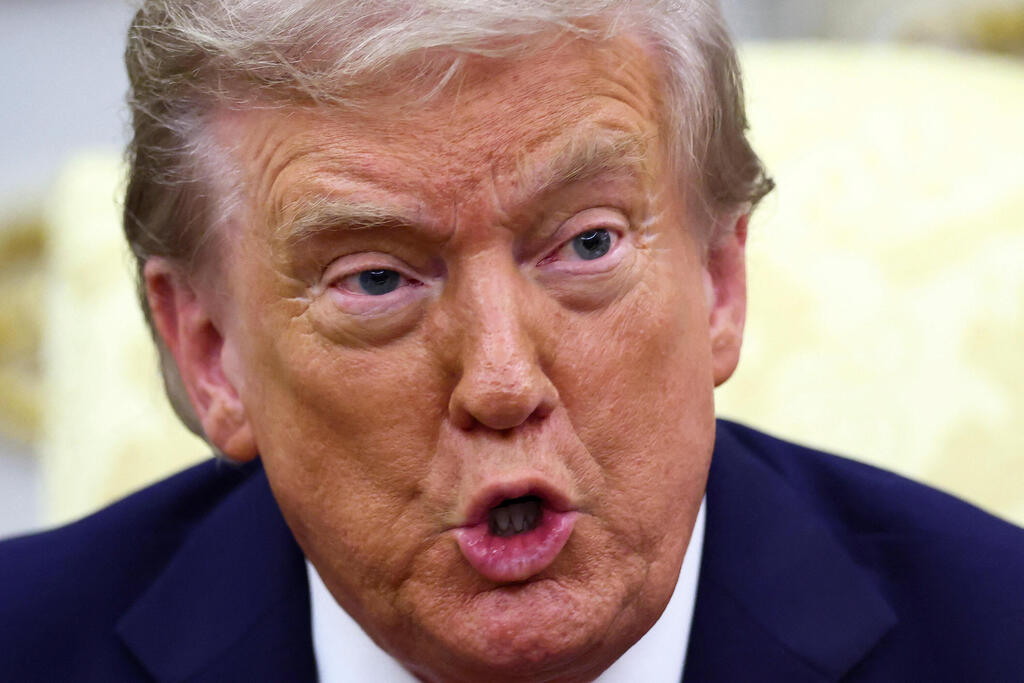U.S. universities have received more than $14.6 billion in contributions from Arab governments and institutions since 1981, led by Qatar, according to a new report that raises concerns about transparency and foreign influence on American higher education.
The findings, released Thursday at the start of the new academic year, are based on official disclosures that colleges and universities are required to file with the Department of Education. The report was compiled by the Jewish Virtual Library, a project of the American-Israeli Cooperative Enterprise, which is broadly supportive of Israel.
4 View gallery


Emir of Qatar Tamim Al Thani
(Photo: Alex Brandon/AP)
According to the data, Qatar alone has given $6.6 billion to U.S. universities, followed by Saudi Arabia with $3.9 billion and the United Arab Emirates with $1.7 billion. Smaller sums came from Jordan, Oman, Bahrain and Kuwait. In total, 13,847 donations were made to 290 institutions across 49 states.
More than 70% of the money — about $10.7 billion — was reported with no specified purpose. Some contributions appeared in unusual forms, such as eight identical gifts of $99,999,999 each from Qatar to Cornell University, with no stated goal.
The report shows the donations have come in waves. Contributions rose sharply after the Sept. 11, 2001, terrorist attacks, then accelerated again beginning in 2020. Roughly a third of all the funds arrived in the past four years. The single largest year was 2023, when Hamas launched its Oct. 7 attack on Israel, sparking the war in Gaza. That year saw nearly $1.5 billion in donations — more than any other year on record.
Universities with Gulf campuses received the largest shares: Cornell University collected $2.3 billion, mostly for its medical school in Doha; Carnegie Mellon received $1.05 billion; Georgetown, $1.02 billion; Texas A&M, $1.01 billion; Northwestern, $770 million; the University of Colorado, $640 million; and Harvard, $358 million.
4 View gallery


Cornell University
(Photo: Shutterstock)
Some individual donations stood out. The University of Missouri–Kansas City reported a $284 million gift from Kuwait to cover tuition for thousands of students in a single semester. MIT disclosed $43 million from Saudi Arabia, listed under “no purpose.” The top 12 universities received almost 60% of all Arab funding.
The donations supported fields such as medicine, engineering and international relations, often tied to campuses in the Gulf. The report noted that several gifts were anonymous, with tens of millions of dollars lacking any detail. Public universities, including Texas A&M and the University of Colorado, were among the recipients, raising questions about the role of taxpayer-supported schools.
The report warned that the funding lacks transparency and could influence academic priorities, with some universities hiring scholars supportive of boycotts against Israel. It also suggested the money could pose national security risks.
Researchers highlighted flaws in the Education Department’s reporting system, including errors, duplications and even deleted entries, suggesting the true scale of foreign donations may be larger. They recommended stricter disclosure rules, lowering the reporting threshold from $250,000 to $50,000, publishing donor identities and purposes online, imposing financial penalties for noncompliance and considering restrictions on gifts from nondemocratic states.
4 View gallery


Pro-Palestinian demonstration at Columbia University, in May
(Photo: AFP, INDY SCHOLTENS)
By comparison, contributions from China and Russia were far smaller during the same period. Qatar was the only foreign country to exceed $6 billion in donations. Jewish and Israeli contributions to U.S. academia were also much lower in scale.
While the Jewish Virtual Library framed the report as part of its broader mission to strengthen U.S.-Israel ties, the figures themselves are drawn from the Department of Education’s official database, making them authoritative.
The report’s release comes amid mounting turmoil on U.S. campuses over antisemitism and protests linked to the war in Gaza. On Thursday, Northwestern University President Michael Schill announced his resignation after months of political pressure and public criticism over his handling of anti-Israel demonstrations and complaints from Jewish students.
Schill had been called to testify before Congress, where Republican lawmakers accused him of failing to protect Jews on campus. Jewish organizations also demanded his ouster.
4 View gallery


US President Donlad Trump
(Photo: REUTERS/Kevin Lamarque)
The Trump administration, which has intensified scrutiny of higher education, froze roughly $790 million in federal research funding to Northwestern in recent months, leading to the layoffs of hundreds of staff members.
Schill’s departure adds to a wave of resignations by presidents and senior administrators at elite universities since 2023, driven by recurring allegations of antisemitism and persistent government pressure.
At Harvard University, President Claudine Gay stepped down after a contentious congressional hearing in which she struggled to condemn calls for violence against Jews. University of Pennsylvania President Liz Magill resigned following similar backlash to her testimony, which critics said was overly permissive toward antisemitic rhetoric.
Columbia University President Minouche Shafik quit in August 2024 after months of fierce campus protests over the Gaza war, including a large encampment that drew police crackdowns and hundreds of arrests. Her interim successor, Prof. Katrina Armstrong, was also forced to resign within months amid continued unrest.

